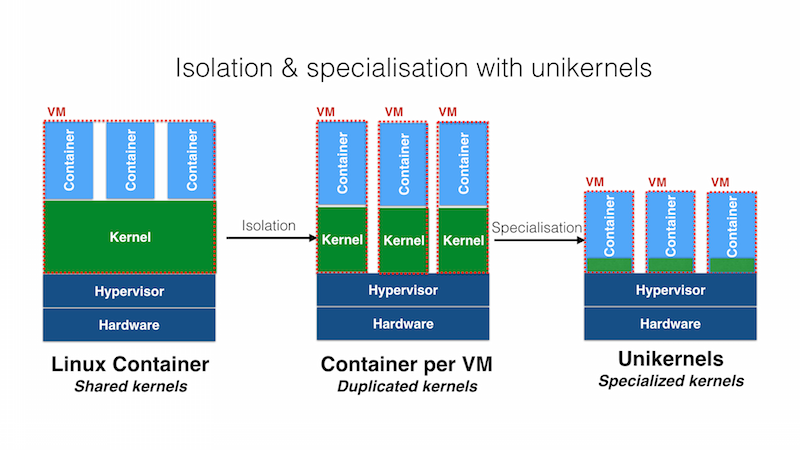
Docker is expanding its reach beyond containers. The company has acquired Unikernel Systems, a U.K.-based company focused on unikernel development.
“Docker is uniquely suited to work with Unikernel Systems to drive one of the most significant recent developments in operating systems technology” Unikernel Systems wrote on its website. “Working together will allow us to accelerate the development and broad adoption of this technology, which will become a critical part of future microservices and IoT.”
Unikernels aim to eliminate complexity and reduce footprint by compiling source code into a custom operating system that only provides the functionality required by the application logic in order to make them small, fast and efficient, according to Docker. Unikernel Systems was formed with a focus to foster the open-source unikernel movement, and to make unikernels along with its tooling more accessible.
(Related: Docker unveils the Open Container Project)
“We are honored to have the Unikernel Systems team, with its incredible pedigree, join the Docker family,” said Solomon Hykes, founder and CTO of Docker. “Our shared vision to take transformative technology and make it accessible to a much wider audience has made the union a natural fit, and it aligns with one of our core tenets to separate applications from infrastructure constraints. Through the Docker platform, unikernels will be on a ‘continuum’ with Linux and Windows containers, enabling users to create truly hybrid applications across all formats with a uniform workflow.”
Together, Docker believes the two companies will be able to provide organizations with a flexible platform that they can build, ship and run distributed apps on without being limited to a particular infrastructure. Unikernel Systems will provide Docker with a wealth of deep systems, kernel and virtualization expertise, while Docker will support Unikernel Systems’ open-source unikernel projects such as MirageOS, Rumprun and unikernel.org.
“We are excited to be part of an organization and a community like Docker that will have such a positive impact on the work that our team and the broader unikernel community have accomplished thus far,” said Anil Madhavapeddy, cofounder and CTO of Unikernel Systems. “Similar to what Docker has done for Linux containers, by combining forces, we will be able to unlock the entire Docker ecosystem for use with unikernels, including orchestration and networking. The integration with Docker tooling will accelerate the progress of unikernels and enable users to choose how they ‘containerize’ and manage their application—from the datacenter to the cloud to the Internet of Things.”





